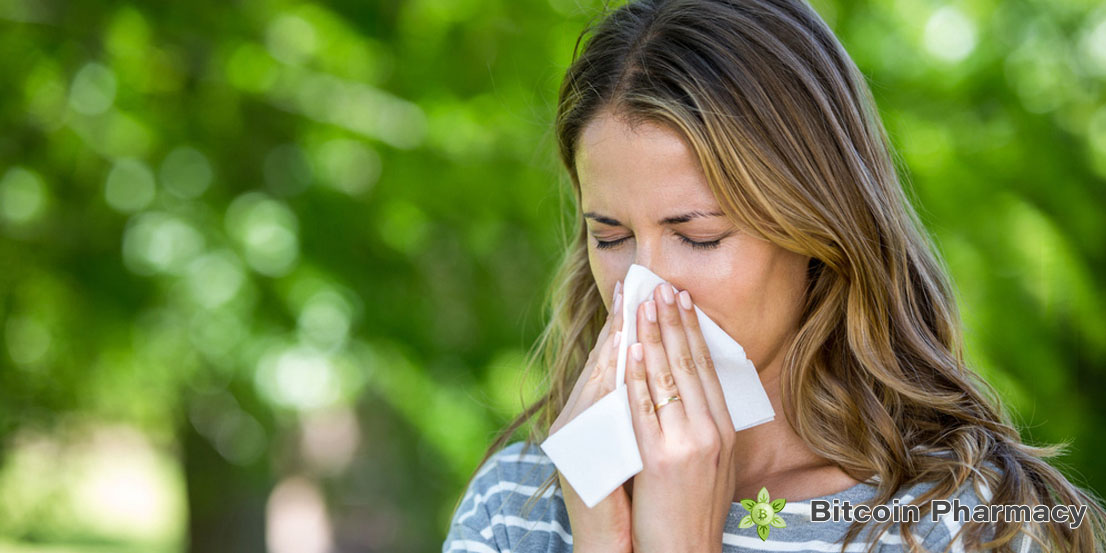When allergy season hits, it feels like the world around you is determined to make you miserable. From itchy eyes to a stuffy nose, congestion, sneezing, and sinus pain—sound familiar? If you’re among the many people who suffer from pollen allergies, also known as hay fever, you get it. The pollen in the air can make life feel unbearable, and even something as simple as swimming in the pool can make your symptoms worse. It’s no surprise that pollen is the top allergen, affecting anywhere from 10% to 30% of adults and over 40% of children in the U.S. But don’t worry—there’s a way to make it all more bearable. Pollen allergy medicine can help! Keep reading to discover the different medications available and how they can help you fight back.
What Is Pollen, and Why Does It Trigger Allergies?
To truly understand your allergy, it’s important to first get familiar with pollen. Pollen is a fine powder released by trees, grasses, and weeds to fertilize other plants. It’s these tiny grains that cause all the trouble. But not all pollen is created equal. For example, the pollen from beautiful flowering plants like roses won’t usually cause you to break out in sneezes. However, pollen from trees, grasses, and weeds can trigger some serious symptoms. It’s difficult to avoid it since a single ragweed plant can release up to a billion pollen grains that can travel up to 100 miles!
What’s even crazier is that different plants pollinate at different times. Trees do their thing first in spring, followed by grasses, and then weeds finish the season off in late summer. Once you breathe in these pollen grains, your immune system reacts, causing cold-like symptoms such as sneezing, a runny nose, and congestion. Some people experience these reactions only during a specific season, while others struggle with them year-round. That’s where pollen allergy medicine comes into play!
What Types of Pollen Allergy Medicines Can Help?
If you’re looking for relief, there are several treatments to consider. Most of these medicines focus on alleviating your symptoms rather than curing the allergy itself, so limiting your exposure to pollen is key. Here’s a rundown of some effective options:
- Nasal Steroids: The Go-To for Nasal Relief Nasal steroids, like fluticasone and triamcinolone, are sprayed directly into the nose to ease symptoms like a runny nose, sneezing, and congestion. You can find some of these over-the-counter (OTC), but others may need a prescription. The trick is to start using them before the allergy season even begins to keep symptoms at bay.
- Antihistamines: The Heroes Against Itching and Sneezing When your body reacts to pollen, it releases histamine, which causes that annoying sneezing, itching, and congestion. Antihistamines block this chemical and come in many forms. You can find them in pills or nasal sprays. Some over-the-counter pills, like Fexofenadine and Loratadine, provide long-lasting relief. Just be careful, as some antihistamines like Chlorpheniramine can make you drowsy. If OTC options don’t cut it, prescription antihistamines like Olopatadine and Azelastine can give you the extra help you need.
- Decongestants: For the Stuffy Nose Decongestants like phenylephrine and pseudoephedrine are designed to clear up nasal congestion. Available as pills or liquids, they offer quick relief. But here’s the catch—decongestants are for short-term use only! Don’t use them for more than three consecutive days, or you might face rebound congestion. Plus, they can raise your blood pressure or cause a fast heartbeat, so it’s a good idea to talk to your doctor first if you have a heart condition or other issues.
- Other Medications: Additional Options to Tackle Symptoms There are other medicines like Cromolyn, which reduces inflammation and helps with sneezing and congestion. Available without a prescription, it’s a solid choice. Another option is montelukast, which blocks substances in the body that cause swelling. You can also try medications like Claritin-D or Zyrtec-D, which combine decongestants with antihistamines for a double whammy of relief.
Other Ways to Manage Pollen Allergy: More Than Just Medicine
While pollen allergy medicines are essential in managing your symptoms, you can also take other steps to reduce your allergy attacks. Immunotherapy, or allergy shots, is one option. This treatment involves exposing your body to small amounts of allergens to help your immune system build a tolerance. Over time, your body won’t react as strongly when it’s exposed to pollen.
In addition to medical treatments, there are several natural remedies and lifestyle changes you can try:
- Nasal Irrigation: Not the most glamorous, but it works. Using a neti pot, you can flush out pollen and mucus from your nasal passages, giving you some relief.
- Soothing Drinks: A cup of herbal tea or hot water with lemon can calm your scratchy throat and reduce irritation.
- Spicy Foods: Believe it or not, spicy foods like chili peppers can help thin the mucus in your nose, making it easier to breathe.
- Supplements: Certain vitamins and herbs, like magnesium and vitamin C, may help alleviate allergy symptoms. Just make sure to check with your doctor before trying anything new.
- Air Purifiers: Install devices like air conditioners or air cleaners to remove pollen and mold from your home. Just remember to keep the filters clean!
While you can’t always control your exposure to pollen, understanding your options and using the right medicine can make a world of difference. You don’t have to suffer through allergy season—find the best treatment for you and start breathing easy again!

Leave a Reply